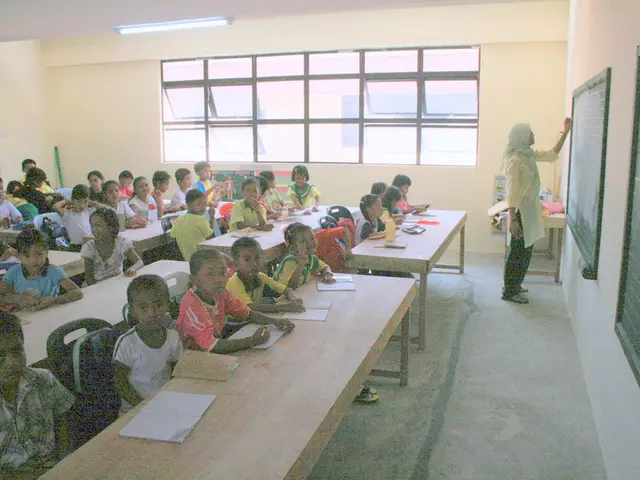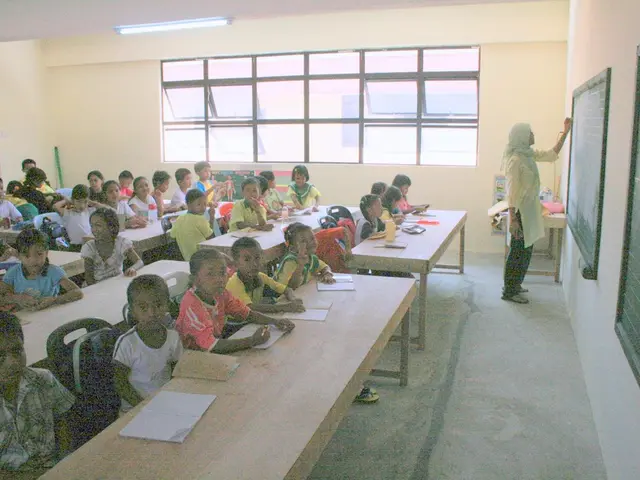Reshaping the Concept of Maturity: The Transformation of What it Means to be an Adult
The concept of adulthood is undergoing significant change, particularly among Millennials and Gen Z, moving away from traditional markers like marriage, career establishment, and homeownership. A new definition of adulthood is emerging, one that is more fluid, self-aware, and psychologically nuanced.
In a groundbreaking study conducted by the University of York in 2024, researchers found that feeling like an adult is more than just reaching certain age milestones or achieving traditional markers. Instead, it's about psychological attributes such as accepting responsibility, making autonomous choices, and achieving financial independence.
Dr. Megan Wright, the lead researcher of the study, stated, "Feeling like an adult is more than age and milestones reached. It's about internal capacities, such as accepting responsibility and making decisions independently."
The study surveyed over 700 UK adults aged 18 to 77, revealing that approximately 80% of the participants defined adulthood by these psychological attributes. Interestingly, only 22-40% of these "adults" participated in traditional milestones such as marriage, career establishment, or parenthood.
Millennials, born roughly between 1981 and 1996, are redefining adulthood in a way that moves away from a fixed set of milestones and embraces a more fluid, self-aware, and psychologically nuanced experience. By their 30s and 40s—traditionally considered midlife—they show increased traits such as independence, self-assurance, and trust, crafting a midlife experience distinct from the stereotypical midlife crisis of previous generations.
Gen Z, born in the mid-to-late 1990s through early 2010s, views adulthood differently. Rather than traditional milestones, Gen Z often equates growing up with financial independence but simultaneously experiences significant emotional challenges. Despite greater access to mental health resources and information, many Gen Z individuals report feelings of emotional exhaustion, detachment, and romanticizing hyper-independence. They face the pressure to "have it all figured out" early, leading to accelerated emotional aging compared to Millennials.
The shift in the definition of adulthood invites us to see it not as a fixed state but as a lifelong practice, a way of becoming. Adulthood is no longer a clearly understood stage of development with traditional markers; it has become a hazy memory for many. The notion is fluid: adulthood is "adulting," a verb reflecting growth, learning, and adaptation in the face of economic instability and social change.
This generational shift challenges the traditional, linear timeline of adulthood. Young adults aged 18-30 showed the most negative attitudes toward adulthood due to the impact of the COVID-19 pandemic and the living crisis on career prospects, housing security, and mental health. In a world marked by economic instability, social fluidity, and a culture that prizes self-actualization over conformity, we are left to ask if adulthood is being delayed or rewritten.
However, the study also emphasizes the importance of fostering more positive narratives around adulthood and celebrating diverse ways people come of age today. The York researchers urge us to move away from rigid timelines and toward a more compassionate understanding of human development. The new definition of adulthood honors a more inclusive, realistic, and ultimately liberating understanding of what it means to grow up.
- The study conducted by the University of York in 2024 unveiled psychological attributes to be crucial in defining adulthood, highlighting the importance of personal growth, self-awareness, and autonomous choices.
- The emerging definition of adulthood, as seen among Millennials and Gen Z, focuses on internal capacities such as responsibility acceptance and emotional intelligence, which might have a significant impact on lifestyle and education-and-self-development.
- Despite greater access to mental health resources and information, Gen Z individuals often face emotional challenges, suggesting a need for editorial consideration that addresses the mental health aspects of lifestyle and personal-growth discussions.







